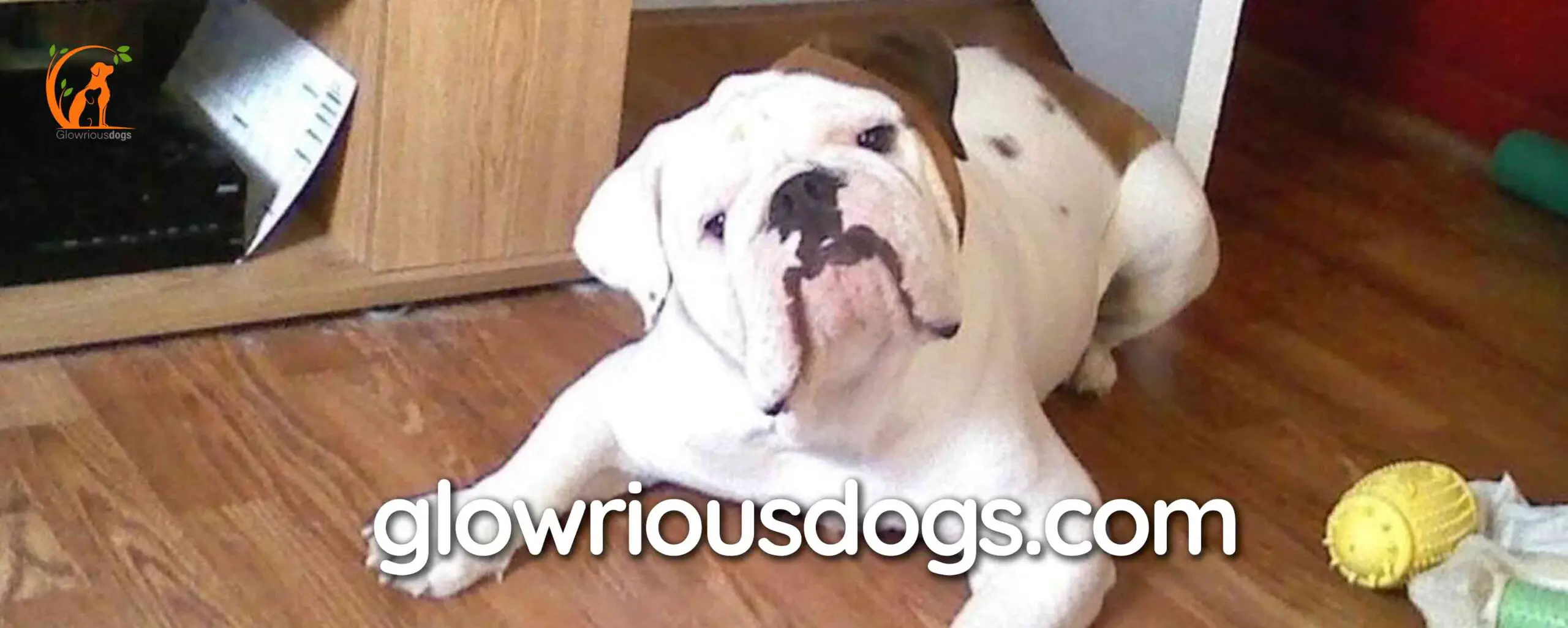Victorian Bulldogs are not typically aggressive but can display protective behavior when necessary. Victorian Bulldogs are friendly, affectionate, and gentle dogs that make excellent family pets.
Known for their loyalty and love for children, these dogs have a calm and laid-back demeanor. They are generally good with other animals and get along well with strangers, making them unsuitable watchdogs. However, like any dog breed, individual temperament can vary, and proper training and socialization are crucial to ensure a well-behaved Victorian Bulldog.
With the right care, these dogs can make wonderful, devoted companions for families of all sizes and ages.
The Nature Of Victorian Bulldogs
Victorian Bulldogs are known for their distinctive nature, which often sets them apart from other dog breeds. With a history rooted in the 19th century, these dogs possess a unique set of personality traits that make them lovable companions.
Victorian Bulldogs are characterized by their gentle and affectionate nature. They are known to be loyal and protective of their families, making them excellent guard dogs. Despite their muscular and sturdy build, they display a calm and patient temperament, making them suitable for families with children.
In addition to their loving nature, Victorian Bulldogs also have a playful side. They enjoy interactive activities with their owners and thrive in environments that allow them to engage in physical exercise. Their energetic and fun-loving demeanor makes them great companions for individuals who lead an active lifestyle.
Overall, Victorian Bulldogs are not typically aggressive. However, like any other dog breed, individual personalities can vary. Early socialization and proper training play a vital role in shaping a Victorian Bulldog’s behavior.
| Breed | Personality Traits |
|---|---|
| Victorian Bulldogs | Gentle, affectionate, loyal, protective, playful, energetic |
With their unique mix of loving nature and playful energy, Victorian Bulldogs can bring joy and companionship to any home. Understanding their nature and providing them with the care and attention they require is key to fostering a strong bond with these remarkable dogs.
Factors Influencing Aggression In Victorian Bulldogs
Genetic predisposition: One of the key factors influencing aggression in Victorian Bulldogs is their genetic predisposition. Some individuals may inherit genes that make them more prone to aggressive behavior. While not all Victorian Bulldogs will display aggression, it is important for owners to be aware that genetics can play a role in their dog’s temperament.
Environmental factors: The environment in which a Victorian Bulldog is raised can also impact their aggression levels. Factors such as lack of socialization, inadequate training, and a stressful or abusive environment can contribute to increased aggression. It is crucial for owners to provide a positive and nurturing environment for their dogs, ensuring proper socialization and training from an early age.
Training and socialization: Proper training and socialization are essential in preventing and managing aggression in Victorian Bulldogs. By providing consistent and positive reinforcement training methods, owners can establish clear boundaries and teach their dogs appropriate behaviors. Socialization with other dogs and people helps Victorian Bulldogs develop good social skills and reduces the likelihood of aggressive behavior.
Recognizing And Managing Aggressive Behavior
Aggression in Victorian Bulldogs should not be taken lightly and it’s essential for owners to be able to identify the signs. Common indications of aggression include growling, barking, snarling, snapping, and lunging. It is important to note that aggression can occur due to various triggers, such as fear, territoriality, or resource guarding.
To effectively manage aggressive behavior in Victorian Bulldogs, positive reinforcement training methods are highly recommended. Consistency, patience, and rewards for good behavior are key to redirecting aggressive tendencies. Training should focus on building trust, strengthening the bond between owner and dog, and teaching proper obedience commands.
If aggression persists or escalates, seeking professional help is crucial. A dog behaviorist or trainer experienced in dealing with aggressive behavior can provide tailored guidance and techniques to address the issue. They can assess the underlying causes, develop a behavior modification plan, and assist with implementing training exercises.
Myth Vs Reality: Victorian Bulldogs And Aggression
It is a common misconception that Victorian Bulldogs are inherently aggressive. However, this breed is often misunderstood due to certain stereotypes. Firstly, it is important to remember that temperament can vary within any breed, and Victorian Bulldogs are no exception. While some individuals may display aggressive behavior, it is not representative of the entire breed.
Another myth is that Victorian Bulldogs have a high prey drive, making them more prone to aggression. While it is true that they have a strong instinct to chase, proper training and socialization can help mitigate these tendencies. Consistent positive reinforcement methods and early exposure to different environments and situations can ensure a well-rounded and friendly Victorian Bulldog.
It is crucial to dispel these stereotypes and judge each Victorian Bulldog on an individual basis. Responsible breeders and owners play a significant role in shaping a dog’s behavior. By providing proper training, socialization, and a loving environment, Victorian Bulldogs can be as gentle and friendly as any other breed.
Ensuring A Safe Environment For Victorian Bulldogs
Ensuring a Safe Environment for Victorian Bulldogs
Creating a secure and nurturing space is crucial to prevent aggressive behavior in Victorian Bulldogs. Understanding triggers and avoiding conflicts is essential for the well-being of both the dog and its owners.
When it comes to providing a safe environment, it’s important to establish clear boundaries. Setting consistent rules and expectations helps the dog feel secure and reduces the likelihood of aggressive behavior.
Additionally, proper socialization plays a key role in preventing aggression. Introducing the Victorian Bulldog to different people, animals, and environments from a young age helps them become comfortable and confident in various situations.
Moreover, identifying triggers that may provoke aggressive behaviors is essential. These triggers can include loud noises, sudden movements, or unfamiliar individuals. Avoiding or gradually exposing the dog to these triggers can significantly reduce their stress and reactivity.
In conclusion, by creating a secure and nurturing space, understanding triggers, and avoiding conflicts, owners can help to prevent aggressive behavior in Victorian Bulldogs. This ensures a harmonious relationship between the dog and its owners.
Responsible Ownership Of Victorian Bulldogs
Responsible ownership of Victorian Bulldogs is essential to ensure their well-being and to prevent any potential aggressive behavior. Encouraging responsible breeding practices is crucial to produce healthy and temperamentally sound bulldogs. Breeders should prioritize selecting dogs with good temperaments and avoiding breeding dogs with aggression issues.
Promoting responsible pet ownership is also important in preventing aggression. Owners should provide proper socialization and training to their Victorian Bulldogs from a young age. Regular exercise and mental stimulation are essential to keep these dogs physically and mentally healthy, reducing the likelihood of aggression.
Owners should also be aware of their dog’s body language and behavior cues, as this can indicate any potential aggression. Early intervention and seeking professional help if necessary can prevent aggressive behavior from escalating.
Overall, responsible ownership of Victorian Bulldogs involves conscientious breeding practices, proper training, socialization, and attentive observation. By following these guidelines, the likelihood of aggression can be minimized, and Victorian Bulldogs can live happy and well-adjusted lives.
Conclusion
While Victorian Bulldogs may have a strong and muscular appearance, their aggression levels are generally low. Understanding proper breeding, socialization, and training techniques can help ensure a well-behaved and friendly bulldog. Through responsible ownership and proper handling, these dogs can make loving and loyal companions for families and individuals alike.
With the right approach, aggression in Victorian Bulldogs can be effectively managed and prevented, allowing them to thrive in a safe and happy environment.
Frequently Asked Questions Of Are Victorian Bulldogs Aggressive
What Is The Behavior Of A Victorian Bulldog?
The Victorian bulldog’s behavior is friendly, affectionate, and loyal. They are gentle with children and make good family pets. They can be stubborn and require consistent training. They have moderate energy levels and enjoy regular exercise. Their protective instincts make them good watchdogs.
What Are Victorian Bulldogs Bred For?
Victorian bulldogs were bred for companionship and as family pets. They are known for their loving nature, loyalty, and gentle disposition.
What Is The Activity Level Of A Victorian Bulldog?
The activity level of a Victorian bulldog is moderate. They require regular exercise to stay healthy and happy. Regular walks and playtime are necessary to meet their activity needs.
What Is The Most Friendly Bulldog?
The English Bulldog is known for its friendly temperament while the French Bulldog is also a popular choice for its sociable nature.











